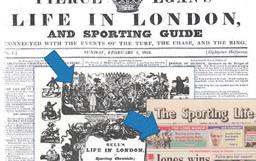

1) Cultural History of Sport
2) Comparative History of Sports and Imperialism between the UK and Japan
3) Transnational Paradigm in the Study for Sport and Entangled History
1) Academic intentions focusing on social agencies continued, and explained crucial social agencies which contributed to changing the mainstream of an authentic historiography, in which the meaning of ordinary people’s custom and pastime was dropped. More significantly, cultural issues were thought not just part of various phenomena in a society, but the key issues for class integration and class strife. Cultural issues such as sports work as agencies of moral codes or habitus which redefine class boundary and eventually produce dynamic waves for the change and the continuity in the main stream of history.
2) Latest comparative studies of the history of British Imperialism and Japanese Imperialism focus on the potentials of providing new East Asian perspectives beyond Asian national relations and collateral history of both feminism and manliness in the period of the Anglo-Japanese Alliances.
3) Some individual studies have shown the effectiveness of the paradigm of transnational history on sport, gender, imperialism and fascism through the case study of Japanese relation to the Western world. However, illustrating the cultural history concerning diffusion of modern sport requires more transnational analysis. The need of Transnational Perspective in history and Entangled History would be worth challenging in interpreting each regional context in the world.